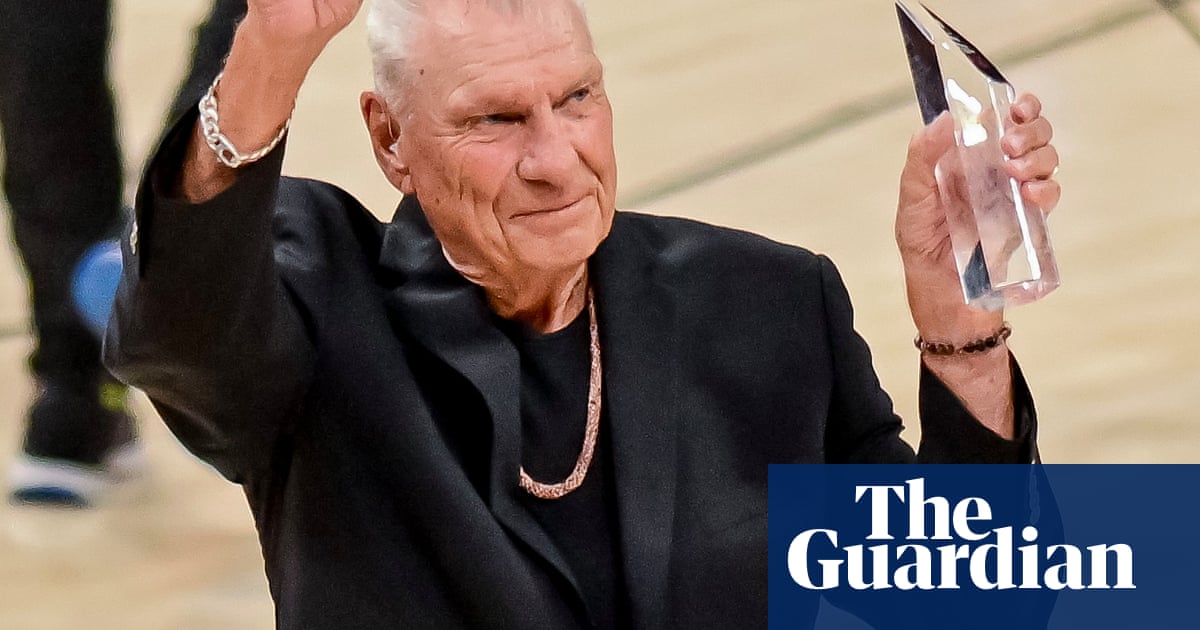The article sheds light on the recent actions of Hall of Fame coach Don Nelson, who expressed his disapproval of the Dallas Mavericks' trade of Luka Dončić during a press conference. By wearing Dončić's signature sneakers, Nelson aimed to make a bold statement about the trade's impact on the team and its fans. This event highlights the emotional connection between players, coaches, and the communities they represent, while also sparking discussions about the significance of retaining generational talents in sports.
Intent Behind the Article
This piece appears to serve multiple purposes. Firstly, it emphasizes the public sentiment surrounding Dončić's trade, particularly the discontent among fans and former players like Nelson. By showcasing Nelson's protest, the article seeks to amplify the narrative that the trade was a significant blunder for the Mavericks, potentially influencing public opinion and keeping the discourse alive. The use of Nelson’s status as a respected figure in the basketball community adds weight to the criticism of the trade.
Public Sentiment and Impact
The article aims to tap into the emotional response of Mavericks fans who felt betrayed by the trade. By presenting Nelson’s thoughts, it fosters a sense of unity among those who share a similar viewpoint, potentially galvanizing fans to express their frustrations further. This could lead to increased scrutiny on the Mavericks' management and their future decisions, especially with the impending draft and the opportunity to select a high-profile player like Cooper Flagg.
Possible Omissions or Concealments
While the article focuses on the protest and the emotional fallout from the trade, it does not elaborate on the strategic reasoning behind the Mavericks' decision. This omission could lead readers to form a one-sided view, lacking a comprehensive understanding of the trade's context. The absence of perspectives from Mavericks’ management or other analysts may skew the narrative in favor of Nelson's protest.
Manipulative Elements
The article could be perceived as somewhat manipulative, particularly through its language and framing. By highlighting Nelson's emotional appeal and using terms like "tremendous mistake," it guides readers toward a negative perception of the Mavericks' decision-making. This framing may evoke strong emotional responses, steering public sentiment without presenting a balanced view of the circumstances surrounding the trade.
Comparison with Other News
In the broader context of sports news, this article aligns with a trend of highlighting dissent within teams following controversial trades or decisions. Similar reports often feature former players or coaches voicing discontent, which can serve as a rallying point for fans. This method of reporting can create a narrative of accountability, particularly in high-stakes environments like the NBA.
Impact on Community and Economy
The article may influence not only the community sentiment but also the Mavericks' brand and economic standing. If the public continues to express dissatisfaction, it could affect ticket sales, merchandise, and overall team support. This could place additional pressure on the Mavericks' management to perform well in the upcoming draft and subsequent seasons.
Target Audience
This news piece is likely to resonate with passionate basketball fans, particularly those who have a strong attachment to the Mavericks and Dončić. It also appeals to those who appreciate the insights of former players and coaches, reinforcing a sense of community among those who follow the sport closely.
Market Implications
In terms of market effects, this news could impact the stock prices of related businesses, such as sports merchandise companies or even the Mavericks' own branding efforts. The emotional response from fans could lead to fluctuations in demand for team-related products if the sentiment remains negative.
Relevance to Current Events
While the article focuses on a specific trade, it reflects broader themes in sports regarding player retention and management decisions. This is particularly relevant as teams prepare for the future and consider their roster strategies, a topic that is always pertinent in the fast-paced world of professional sports.
Potential Use of AI in Article Composition
It’s plausible that AI tools were utilized in drafting the article to streamline content or analyze data from social media regarding fan reactions. However, the emotional depth of the piece suggests a human touch, particularly in capturing Nelson's sentiments and framing the narrative. If AI was involved, it likely aided in data gathering or formatting rather than in crafting the nuanced emotional content.
Overall, the article presents a compelling view of the situation, but its potential biases and omissions warrant a cautious approach to the conclusions drawn from it. The reliability of the information hinges on the broader context and diverse perspectives that are not fully represented here.
